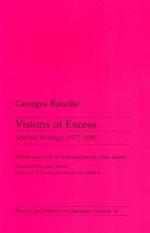
|
| Name: _________________________ | Period: ___________________ |
This test consists of 15 multiple choice questions and 5 short answer questions.
Multiple Choice Questions
1. When does being become undefined, according to Bataille?
(a) When it is projected beyond itself.
(b) When it is discovered in another.
(c) When it is drawn from imagination.
(d) When it is projected on an unworthy object.
2. How did fascists see Nietzsche?
(a) As a traitor.
(b) As a prosecutor.
(c) As a primary ancestor.
(d) As a martyr.
3. What value does money articulate for workers?
(a) The value of their status.
(b) The value of their ideas.
(c) The value of their personal worth.
(d) The value of what they produce.
4. What does Bataille say is the only religion for fascists?
(a) Christianity.
(b) Technology.
(c) Power.
(d) Race.
5. What does Bataille say is the only virtue for fascists?
(a) Language.
(b) Germany.
(c) Religion.
(d) History.
6. How did Engels and Hartmann differ on the tenets of Hegel's "Philosophy of Nature"?
(a) Engels believed them, but Hartmann was indifferent.
(b) Engels was indifferent to them, but Hartmann did not believe them.
(c) Engels believed them, but Hartmann did not.
(d) Engels did not believe them, but Hartmann did.
7. Who developed the theory of conspicuous consumption?
(a) Karl Marx.
(b) Max Weber.
(c) John Dewey.
(d) Thorstein Veblen.
8. What does Bataille say is the contradiction in Christians worshiping God?
(a) They keep the poor down while their worship exalts them.
(b) They elevate God's power, but claim it for themselves alone.
(c) They hold people to scripture in private life but not in the marketplace.
(d) They only go to church one day a week, but work the other six in profane employments.
9. When is the 'me' free to accept individuality and transcendence, in Bataille's opinion in "Sacrifices"?
(a) When it is dying in peace.
(b) When it is dying by violence.
(c) When it is dying in freedom.
(d) When it is dying in religion.
10. What does Bataille say would result from a difference of events in his experience?
(a) He would be an other.
(b) He would have to confront his true self.
(c) He would reveal his alter-ego.
(d) He would be at war with himself.
11. What was Mussolini's relationship with Nietzsche?
(a) He refuted his arguments.
(b) He named him as one of his inspirations.
(c) He did not cite his influence on fascism.
(d) He claimed him as an ancestor.
12. What does the homogeneous part of society purchase?
(a) Capital.
(b) Unions.
(c) Production.
(d) Workers.
13. What are the two classes Bataille divides consumption into?
(a) Productive consumption and wasteful consumption.
(b) Conservation of life and productive activity.
(c) Conspicuous consumption and invisible consumption.
(d) Sacrificial consumption and gift consumption.
14. What are the two forms of heterogeneity Bataille introduces in "Psychological Structure of Fascism"?
(a) The policeman and the drunkard.
(b) The Marxist revolution and the capitalist marketplace.
(c) The sovereign and the worker.
(d) The bourgeois merchant and the Jewish banker.
15. What approaches to Hegel's philosophy did Nicolai Hartmann compare?
(a) Feminist and modernist.
(b) Practical and theoretical.
(c) Verbal and reality-based.
(d) Historical and philosophical.
Short Answer Questions
1. What claim does Bataille make in "The Obelisk"?
2. What did Engels work for eight years to develop, but ultimately disavow?
3. What does Bataille say the world offers modern man to love?
4. What does Bataille say profit leads to, in "The Labyrinth"?
5. What does Baumler call revolution?
|
This section contains 577 words (approx. 2 pages at 300 words per page) |

|




